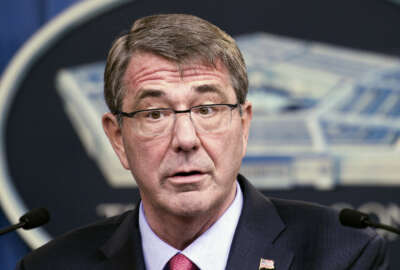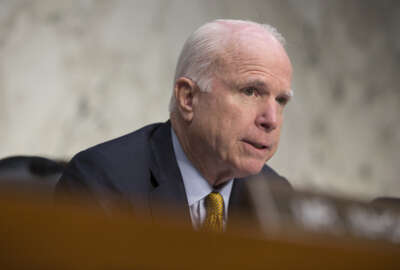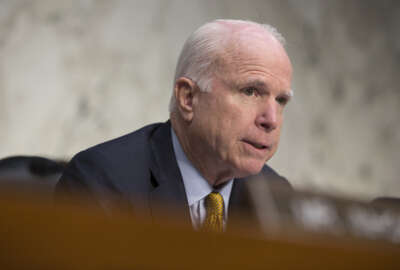
Toughest military personnel challenges to get think tank treatment
The Bipartisan Policy Center is forming a task force to tackle the tough military personnel issues.
A bipartisan think tank that boasts some top defense experts on its staff is trying to help change the way the Defense Department thinks about military personnel.
The Bipartisan Policy Center announced June 29 the creation of a military personnel reform task force aimed at ensuring the military remains capable of succeeding against future threats by improving troop recruitment and retention.
The task force is working on two specific areas it feels DoD needs. The panel will be looking at the best way to redesign and reorganize the department.
“As it looks to attract these innovative thinkers, the Department of Defense (DOD) must consider the appropriate composition and organization of its personnel. It must consider improved utilization of the active and reserve components along with other ‘whole of government’ methods to advance our security interests,” the task force’s initial report stated.
The panel will also consider how DoD can create a force that can adapt to changing battlefields, threats and landscapes. The report points to DoD’s trouble with cyber forces as an example.
“Personnel with cyberspace and special-operations experience are in high demand today and will take on greater importance in the future,” the report states.
The panel will release several reports over the next months.
Of course, there are numerous impediments to transforming the Pentagon and the panel states it will take those into consideration as well. Specifically, the panel will address budget constraints, the aging bureaucratic structure and the shrinking talent pool the military has to choose from.
Senate Armed Services Committee Chairman John McCain (R-Ariz.) praised the creation of the task force during its announcement in Washington.
McCain has already tried to implement some military personnel changes in his work on the 2017 defense authorization bill.
McCain said there is still plenty of work for the commission to deal with, however.
McCain’s bill reduces the number of general and flag officers by 25 percent, something the House bill also did. The number of four-star officers was cut from 41 to 27.
Senior Executive Service civilian employees would be cut by 25 percent.
Additionally, in a continued attempt to cut DoD’s headquarters spending and staff, a provision enforces caps on military and civilian headquarters personnel. The bill would only allow a 15 percent increase over the cap in times of a national emergency.
Headquarters contractors would feel the pinch too. A provision caps the amount of money the Office of the Secretary of Defense and the military departments could spend on contractors performing headquarters staff functions.
The bill also reforms TRICARE and shrinks the size of the National Security Council.
Congress isn’t the only one taking notice of the need for personnel reform. DoD has been implementing its Force of the Future reforms to try and better the military.
The department has created programs that make it easier for service members to work in the private sector and then transition back to the military.
DoD also created the Defense Digital Service to bring in top technology experts to solve big IT problems.
The department is also lifting bans on groups formerly barred from military service. DoD now allows gays in the military and is expected to lift its ban on transgender individuals this week.
Congress hasn’t been 100 percent on board with all of the Force of the Future changes, however.
“Many of these Force of the Future proposals appear to be solutions in search of a problem,” McCain said, during a February hearing. “I find it deeply disturbing that you are proposing to add expensive fringe benefits allegedly aimed at retention during a time when we are asking 3,000 excellent Army captains to leave the service who would have otherwise chosen to remain on active duty. From my perspective, this initiative has been an outrageous waste of official time and resources during a period of severe fiscal constraints. It illustrates the worst aspects of a bloated and inefficient Defense organization.”
Others in Congress have accused DoD of spending too much time and money on personnel issues, instead of spending it on readiness.
Copyright © 2025 Federal News Network. All rights reserved. This website is not intended for users located within the European Economic Area.
Scott Maucione is a defense reporter for Federal News Network and reports on human capital, workforce and the Defense Department at-large.
Follow @smaucioneWFED





